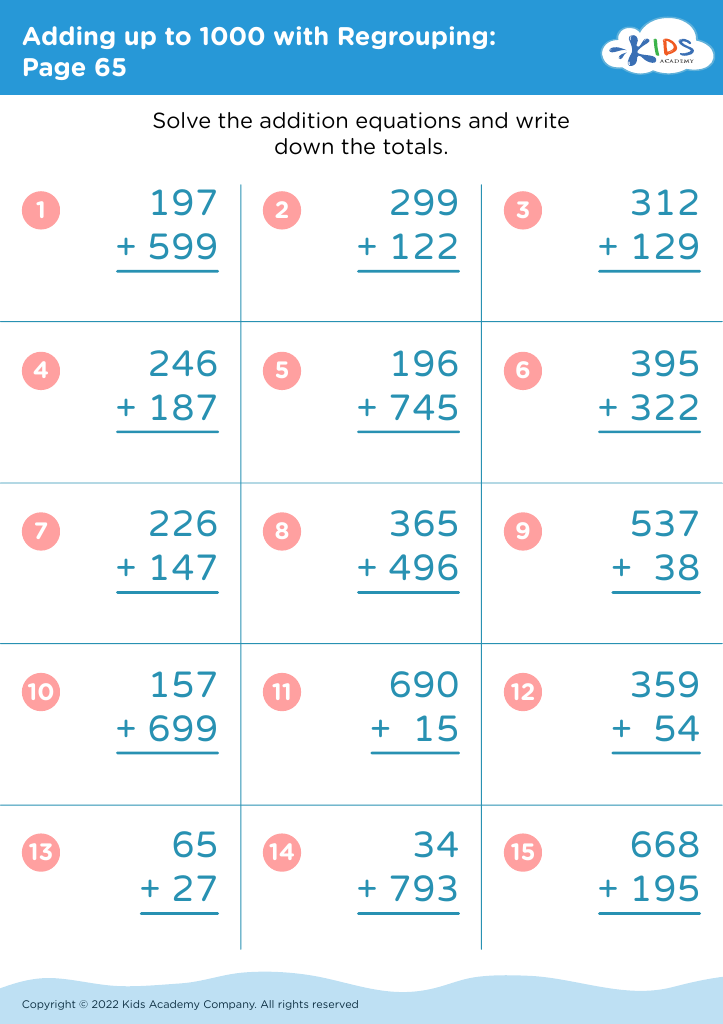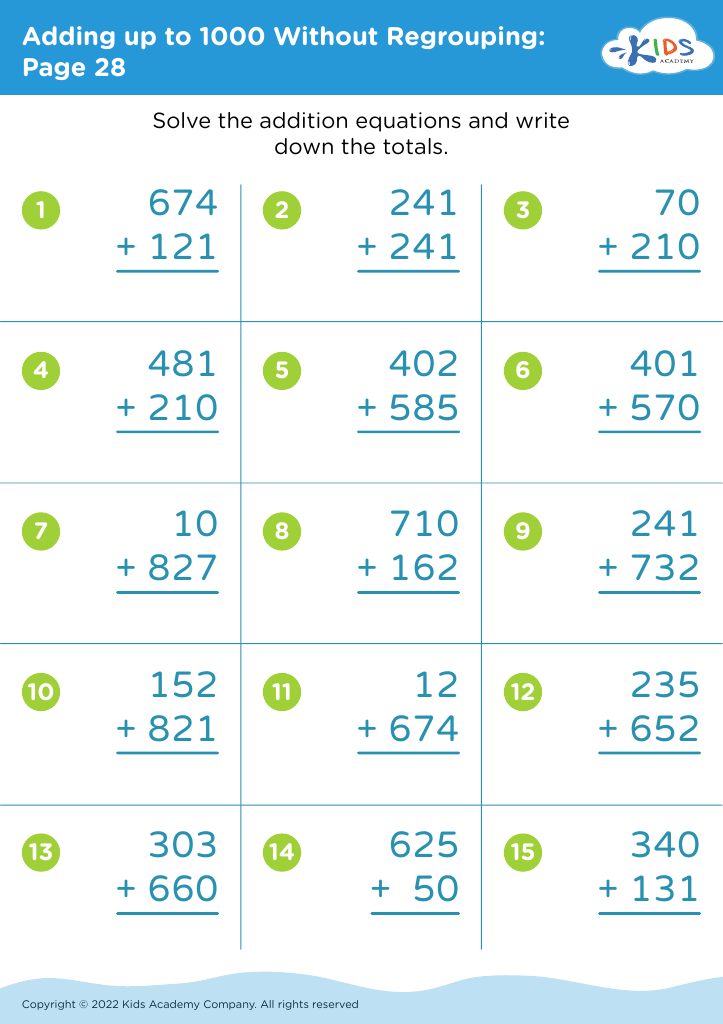Addition of fractions Addition & Subtraction Worksheets for Ages 6-8
3 filtered results
-
From - To
Welcome to our Addition of Fractions Worksheets page for kids aged 6-8! Designed to make learning fun and engaging, these worksheets provide a comprehensive approach to mastering the art of adding fractions. Young learners will develop essential math skills through an array of interactive exercises and colorful illustrations. Each worksheet reinforces foundational concepts, with step-by-step guidance to help children confidently tackle fraction addition and understand common denominators. With a mix of varying difficulty levels, these resources cater to different learning paces, ensuring every child can thrive. Let’s make math enjoyable and accessible with our creative and educational activities!
Parents and teachers should prioritize the addition and subtraction of fractions for children aged 6 to 8 because these fundamental skills build essential mathematical concepts and logic needed for advanced learning. At this developmental stage, children are beginning to understand numbers beyond whole values, allowing them to explore the world of fractions, which is crucial for grasping more complex mathematical topics in the future.
Understanding how to add and subtract fractions lays the groundwork for real-life applications, like cooking or dividing objects into equal parts, enhancing critical thinking and problem-solving skills. Encouraging children to experiment with fractions fosters a positive attitude towards math and helps them recognize its relevance in everyday situations.
Additionally, mastering these skills early on contributes to their overall confidence in mathematics. It encourages a growth mindset, where children learn that mistakes are part of the learning process. Parental support and teacher guidance in developing a strong foundation in fraction operations can lead to increased mathematical fluency and can spark a lifelong interest in math. Investing time and resources in helping children with these concepts ensures they develop the skills necessary for academic success and practical life applications, creating a solid foundation for future learning.
























